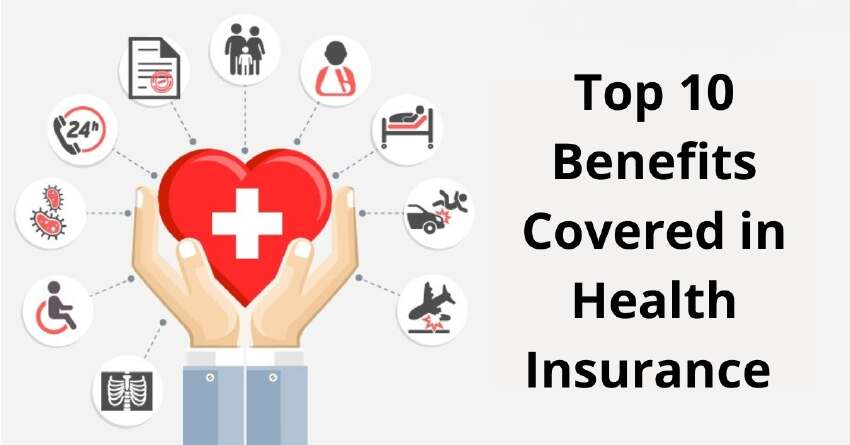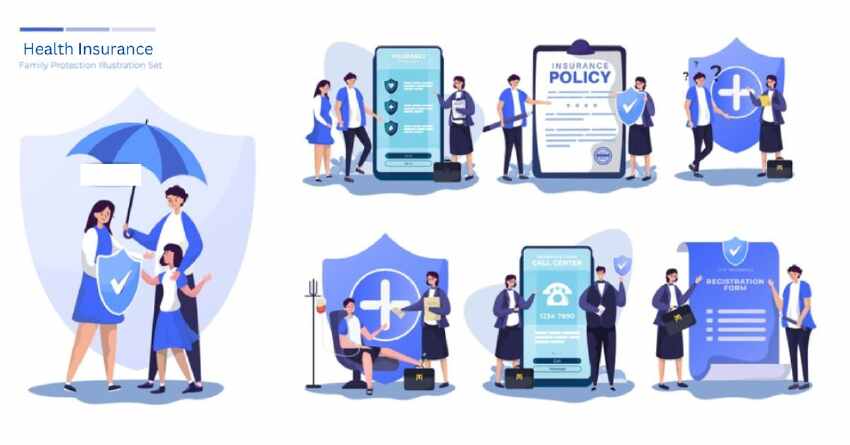Health insurance plans, often known as medical insurance, compensate policyholders for medical expenses such as those incurred during operations, treatments, and hospitalization, as well as those incurred due to disease, injuries, or even accidents. While settling claims for health insurance, the insurer pays the benefits to an insured in line with the agreement and conditions of the policy.
In layman's terms, a medical insurance and health insurance policy is indeed a contract in which the insurance company pledges to reimburse the insured's medical expenditures if they fail and require emergency medical treatment. Almost everywhere, health insurance firms partner with a chain of hospitals as network hospitals to provide cashless treatment to the insured.
Health insurance is a contract that requires an insurer to cover some or all of a person's medical expenses in exchange for a monthly fee. According to Molly Moore, co-founder & chief health insurance plan officer of health insurance start-up Decent, the goal is to save you from going bankrupt in the case of an emergency. Some people obtain health insurance because they know they have continuous health care concerns that must be addressed, while others buy health insurance because they are afraid of something that may occur that they cannot prepare for, she adds.
Going without health insurance coverage jeopardizes both your ability to receive care and your personal finances, according to Noah Lang, CEO, and co-founder of Stride Health, a benefits platform primarily for independent workers. People who are uninsured (or underinsured) are unwilling to seek care, which might jeopardize their health, he says.

Outpatient care is care received without being admitted to a hospital.
Emergency department visits.
Hospital treatment for inpatient care.
Prenatal and postnatal care for your baby.
Services for mental illness and substance abuse: This covers treatment for behavioral health issues, counseling, and psychotherapy.
Your prescription medications.
Services and gadgets to aid in your recovery if you have been wounded, have a handicap or have a chronic ailment. Physical and occupational treatment, speech therapy, mental rehabilitation, and other therapies are provided.
Your laboratory tests.
Counseling, tests, and immunizations are among the preventive treatments available to help you stay healthy and manage a chronic condition.
Pediatric services include dental and eye treatment for children.

Choosing any health insurance plan may be a daunting undertaking. Here are five things to consider when selecting health insurance for both you and your family. See your plan's Summary of Benefits & Coverage (available from such an insurance company), call an insurer directly, or visit the insurer's website for specific information on health insurance plan components.
It is critical to note that in-network services and medications are covered by an insurance plan, but out-of-network services and medications may incur additional out-of-pocket charges or may not be reimbursed at all. Importantly, out-of-network service expenses may not count toward a plan's out-of-pocket limit. Check to check if your chosen primary care or specialty physicians, as well as the drugstore closest to your house, are part of the plan's network.
Premiums are the fees you pay to an insurance company for coverage, regardless of whether you utilize medical or pharmaceutical services. Premiums are normally paid monthly, and if you miss a payment, you may lose your coverage. Remember that these are not the only expenses connected with coverage. For most healthcare services and treatments, you will also be responsible for paying deductibles and cost-sharing, such as co-pays and coinsurance.
For example, when your deductible is $1,000, the health insurance plan will not cover most charges until you have spent $1,000 on your own. Specialist visits, treatment fees, and, in certain situations, medicines are examples of out-of-pocket expenses. Before you hit your deductible, many preventative procedures, like authorized cancer screenings and immunizations, are often covered with no cost sharing. Patients who choose a health insurance plan with a high deductible will almost always have a lower monthly premium, whereas plans with smaller deductibles will almost always have a higher monthly premium. Most medical or pharmaceutical treatments are no longer covered by insurers until a deductible is reached. Check with your insurer to see if your health insurance plan has a combined deductible for both medical and pharmacy services or even a separate deductible for just prescriptions to determine how much you'll have to pay before your medications are covered.
Remember that even after you've met your deductible, you could be responsible for further out-of-pocket payments. These are some examples:
• Coinsurance is a portion of the cost of medication or service that you must pay.
• Co-pays are flat payments that you must pay for medicines for covered services (often listed on the back of your insurance card)
Each insurer has its own formulary (a list of drugs that are covered by the plan). If a medication is not in the formulary, it may not be covered, forcing patients to undergo a potentially lengthy procedure to get coverage. The list of eligible medications is also separated into tiers, which influence the amount of co-pay or coinsurance you may be required to pay. Make a list of your existing medications and compare them to the plan's formulary to ensure your medications are covered and that you understand any out-of-pocket charges.
If you are interested in a health insurance plan then click on this link: policybazaar.com

.webp)